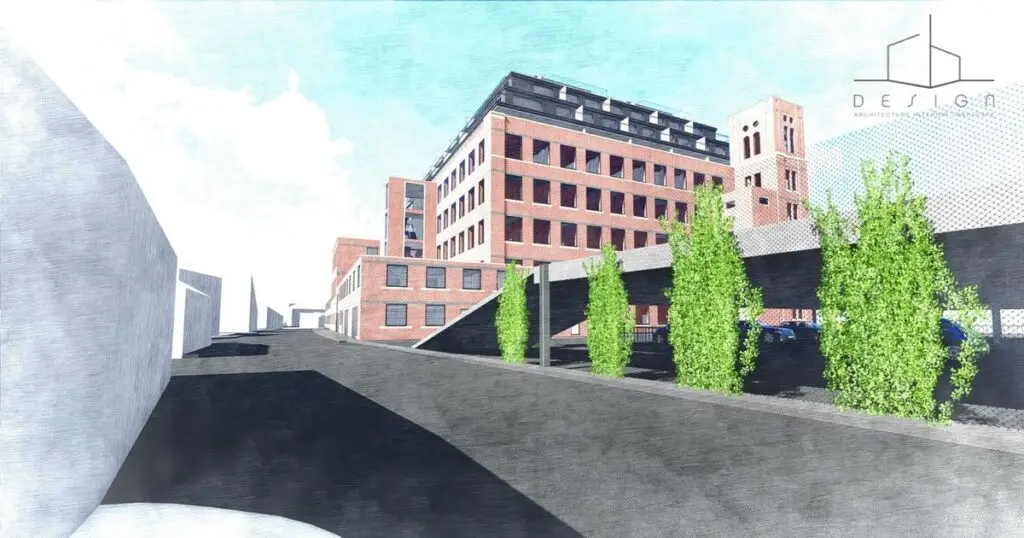A section of the historic Ivy Mill in Oldham is poised for a significant transformation into a residential complex featuring over 100 apartments, despite facing opposition from local residents.
The 140-year-old mill, situated on Crown Street within the Failsworth Pole Conservation Area, is a site of considerable local historical significance although it is not listed as a protected building. Historically, Ivy Mill employed over 75,000 spindlers and played a pivotal role during the war in the production of the Lancaster Bomber, which garnered a visit from King George in 1939.
Developer Navid Dean has obtained permission to add four new tiered floors atop the existing five-storey structure. The revamped building will comprise 102 apartments, including six one-bedroom, 85 two-bedroom, and 13 three-bedroom units. Additionally, three floors will remain allocated for business use, accommodating enterprises such as the Ivy Mill Business Centre.
The proposal was initially presented to the planning committee in July; however, a final decision was delayed due to ongoing discussions regarding the inclusion of affordable housing. Ultimately, the developer agreed to incorporate 10 affordable homes into the project. The development’s approval is contingent upon a £112,000 contribution towards enhancing public open spaces at Higher Memorial Park. This includes over £32,000 for green space improvements and £80,000 aimed at improving facilities for children and young people within the park.
Simon Plowman, the developer’s representative, emphasised the project’s potential benefits, stating, “It’s a project that we believe will significantly enhance the community. Like many areas of GM there’s a shortage of housing in this area.”
However, the proposal has met with resistance from local residents, with 14 objections recorded on the planning portal. Jill Wate, a local business owner, articulated her concerns to the planning panel, highlighting the ‘detrimental impact’ on local services. She pointed out existing strains on amenities such as dentists, GPs, and schools, further expressing concern about traffic issues potentially exacerbated by the new development. “The developer giving £112,000 to the council will make no difference to the dangerous situation created if this is passed… It is a big problem I anticipate on Crown Street,” Wate argued.
In addition, parking provisions have been scrutinised. The developer’s plan to add 50 more parking spaces, bringing the total to 162, was deemed insufficient by councillor Peter Hobin, who noted that the allocation is inadequate given the 211 rooms in the apartment block.
Despite these concerns, the plans were approved by a majority vote, on the condition that the developer commits to a construction management plan aimed at minimising disruption for local residents.
The transformation of Ivy Mill into a residential complex marks a significant development in Oldham’s urban landscape. While the project promises substantial housing benefits, it has also sparked considerable local opposition over concerns related to infrastructure and community impact. The approval, accompanied by specific conditions and contributions, underscores the complex balance between development and community well-being.


